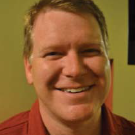-
Distinguished Lectures: Engineering immunity via hitchhiking therapeutics

Thu, Jan 23, 2014 @ 12:45 PM - 01:50 PM
Mork Family Department of Chemical Engineering and Materials Science
Conferences, Lectures, & Seminars
Speaker: Darrell Irvine, Departments of Biological Engineering and Materials Science & Engineering, Koch Institute for Integrative Cancer Research, Massachusetts Institute of Technology Ragon Institute of MGH, MIT, and Harvard Howard Hughes Medical Institute
Talk Title: Engineering immunity via hitchhiking therapeutics
Series: Distinguished Lectures
Abstract: Our laboratory develops synthetic materials as tools to dissect cellular immunology and as delivery agents for new immunotherapies and vaccines. In this talk, two examples illustrating work from our laboratory will be described. In the first segment, we focus on the problem of targeting antigens and immunostimulatory agents to lymph nodes, the anatomical site where immune responses are initiated. A clinical procedure where efficient lymph node targeting is achieved is sentinel lymph node mapping in cancer patients, where small-molecule dyes are efficiently delivered to lymph nodes by binding to serum albumin. To mimic this process for vaccine delivery, we synthesized amphiphiles designed to non-covalently bind vaccine antigens and adjuvants to endogenous albumin. These “albumin-hitchhiking” amphiphiles were efficiently delivered to lymph nodes following injection, leading to impressively amplified cellular immune responses and anti-tumor immunity.
In a second example, we turn to a cellular therapy for cancer. Adoptive cell therapy (ACT) using patient-derived tumor-specific T-cells is a promising approach for cancer treatment, but strategies to enhance the persistence and functionality of ACT T-cells are still sought. Meanwhile, the use of synthetic nanoparticles as carriers to deliver drugs to tumor environments has become of increasing interest, with the goal of targeting drugs to tumor sites. We will describe a strategy combining these two approaches, based on chemical conjugation or targeting of drug-loaded nanoparticles (NPs) to the surfaces of live lymphocytes for ACT. We demonstrate how ACT T-cells carrying cytokine-loaded NPs (to permit pseudo-autocrine self-stimulation following transfer into tumor-bearing hosts) are capable of massive in vivo expansion and robust anti-tumor responses, enabled by minimal doses of cytokines that by comparison have no therapeutic effect when given in a soluble form systemically. Together, these results suggest that the combination of nanotechnology approaches with cell therapy can dramatically enhance the efficacy of cancer immunotherapies.
Host: Prof. Wang
More Information: Darrel Irvine poster-2014.pdf
Location: James H. Zumberge Hall Of Science (ZHS) - 159
Audiences: Everyone Is Invited
Contact: Ryan Choi
This event is open to all eligible individuals. USC Viterbi operates all of its activities consistent with the University's Notice of Non-Discrimination. Eligibility is not determined based on race, sex, ethnicity, sexual orientation, or any other prohibited factor.




